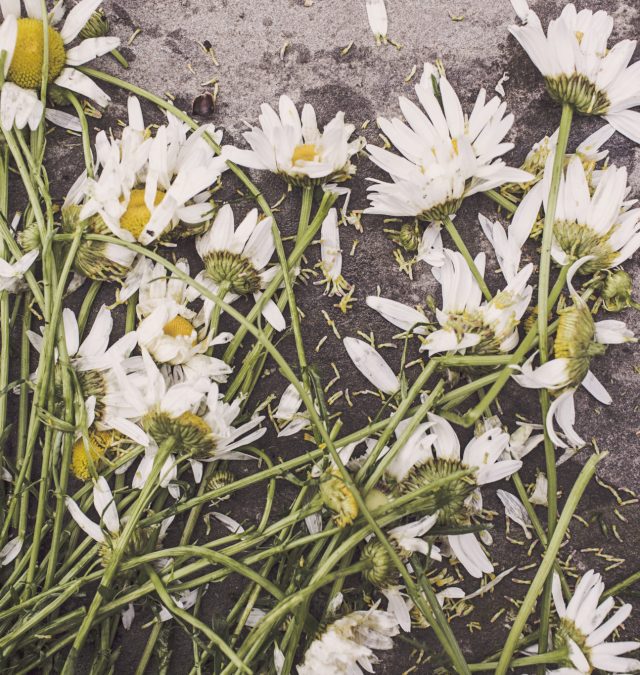
Embracing Death
A few days ago my wife had a dream that I died.
I had had a heart attack. Collapsed right in front of her.
I won’t lie, I found it a little funny. I have a relatively morbid sense of humor and don’t take my own death too seriously.
But she could barely get through the story without breaking into tears. The next two days she was tugging onto me like she did at the beginning of our romance.
It was almost as if once I had died, she remembered just how much she loved me.
It was sweet.
But it also made me ask myself — why did it take me dying to feel this level of appreciation?
And why don’t I treat her likewise?
What would happen if I thought she was going to die? What if I lived as if everything I had was going to disappear? What would happen if I started embracing death?
How would I behave differently?
Death Is Responsible For Life
Many people have a difficult time dealing with death.
Makes sense.
It is scary thinking about how you’re going to disappear from this world one day, and how everyone you love will also fade from existence.
(Read: The Truth About Death)
But people forget without death there could be no life.
That is both a physical and metaphysical fact.
We kill things constantly to survive. It is the death of the animal or a plant that nourishes us. No creation in nature is without the destruction of something elsewhere.
Exploding dead stars are what creates new ones.
Nature is fundamentally about birth and rebirth. Embracing life requires embracing death.
And perhaps more importantly, it makes our lives matter.
It gives our life meaning.
Find me someone who has come close to or even experienced death and I will show you a person who appreciates his days here, and who lives each day with purpose.
The young, sheltered people who aren’t pushing themselves on the other hand?
Not so much.
They think they are immortal. Or at least, they do until they start getting older — when they realize they are not immune to the cycles of nature.
It’s no coincidence most people have “quarter life crises” and start to really get their lives together in their mid-late 20s. 26-28 is the first time you start to feel and see the first effects of aging on your body.
A few aches. A little less energy. Wrinkles under the eyes. Skin a little less taut.
That realization, “Fuck — high school was a decade away.”
The requirement you start embracing death, because it focuses your attention on what is most important.
If we didn’t have that sense of “time crunch” how many of us would act?
99.9% of us are all procrastinators at our core. Without the “deadline” (funny word huh?) we would be extraordinarily lazy. The reason we work is to squeeze this orange of existence as much as possible. If we didn’t have that; if we were immortal — life would have no meaning. And nihilism and hedonism would be all rage.
(A side note: Isn’t it interesting that in western society, whose mantra is limitless experiences and escaping death / aging, that is exactly what is happening?)
Embracing Death Leads To Gratitude
With this in mind, I am going to propose something counterintuitive.
If you want to enjoy your life, make it a daily practice to envision everyone you love dying.
Picture life with those you care about. And then picture them gone.
Do the same for all the “inadequate” stuff you have. Imagine yourself without it.
You will realize how ridiculously lucky you are.

Gratitude comes from appreciating what we have is not only special, but finite. That we are under constant scarcity; every minute we lose with someone is one we will never get back.
It is understanding that what we have now we might not have later.
It is embracing death, both of ourselves and everything we know.
You should appreciate what and who you have afterwords.
And if you don’t?
Well, it might be a sign you’re a psychopath 😉
But more likely, if you imagine that person or thing being gone, and you don’t feel anything… or heaven forbid, relief… then it’s a sign of something even more powerful.
That that person or thing probably shouldn’t be in your life.
(Read: Why It’s Ok To Ditch Old Friends)
Even though it’s unlikely you will actually feel nothing when they’re gone, the power of death-focus is that it cuts through your conscious chatter and goes directly to your subconscious.
And if your subconscious is looking forward to that person or thing being out of your life, it’s a sign they’re blocking you from going where your subconscious wants you to go.
When you focus on death you are assessing your life. You are assigning value to each moment you have.
Maybe, just maybe, it’ll tell you what you can let go… and where you can do more.
Conclusions
A client of mine is in a situation where if things got really out of control, he could die.
Unlikely, for sure.
But his estranged wife seems to realize it — and all the drama and bullshit that had been flying back and forth is suddenly fading.
Death concentrates your focus.
Embrace it if you want to maximize your life.
[et_bloom_inline optin_id=optin_1]

